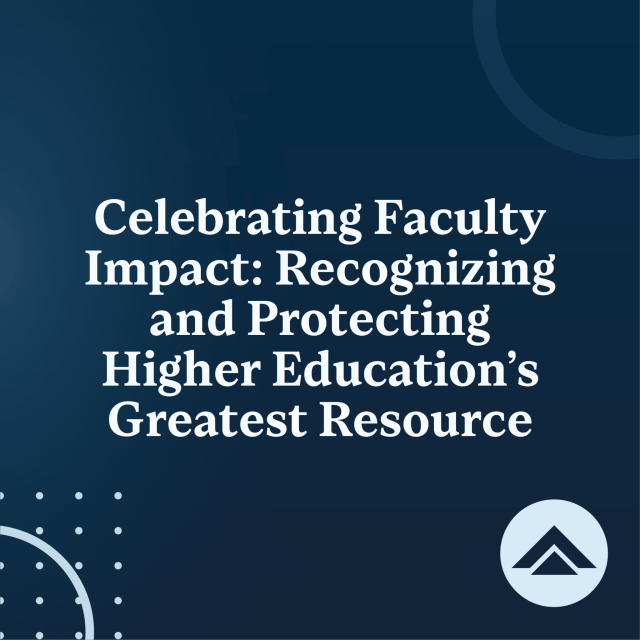Celebrating Faculty Impact: Recognizing and Protecting Higher Education’s Greatest Resource
When higher education is the focus of news stories or the national spotlight, it is often not in the most flattering light. There are indeed important trends and concerns that higher education continues to work to address; however, there are also astonishing accomplishments that result from the ongoing work of institutions and their faculty. In this keynote, we briefly explored that national spotlight before focusing most specifically on the often-unheralded work that faculty perform in service to students, the public, and democracy. These endeavors are worthy of celebration. In an era where anxiety, compassion fatigue, and burnout are real threats to our faculty, this session concludes with concrete recommendations for how to meaningfully recognize faculty accomplishments as well as actions to take to ease burdens and reduce burnout.

C. Edward Watson, Ph.D.
Associate Vice President for Curricular and Pedagogical Innovation
American Association of Colleges and Universities
About the Speaker
C. Edward Watson, Ph.D. is Associate Vice President for Curricular and Pedagogical Innovation for the American Association of Colleges and Universities (AAC&U) and formerly Director of the Center for Teaching and Learning at the University of Georgia. At AAC&U, he leads national and state-level advocacy and policy efforts to advance quality in undergraduate student learning. He also directs numerous faculty development and institutional capacity building efforts in support of faculty and student success. He has been quoted in the New York Times, Chronicle of Higher Education, Campus Technology, EdSurge, Consumer Reports, UK Financial Times, and University Business Magazine and on CNN and NPR regarding current issues and trends in higher education. He is also the author of two recent books, Teaching Naked Techniques: A Practical Guide to Designing Better Classes and Playing to Learn with Reacting to the Past – Research on High Impact, Active Learning Practices.
